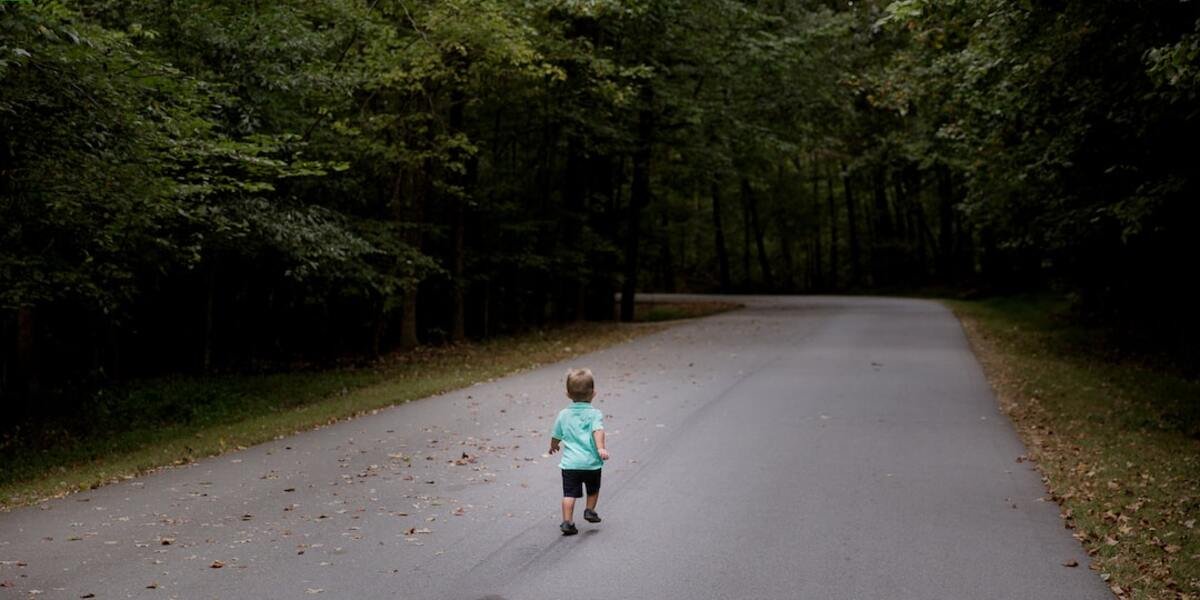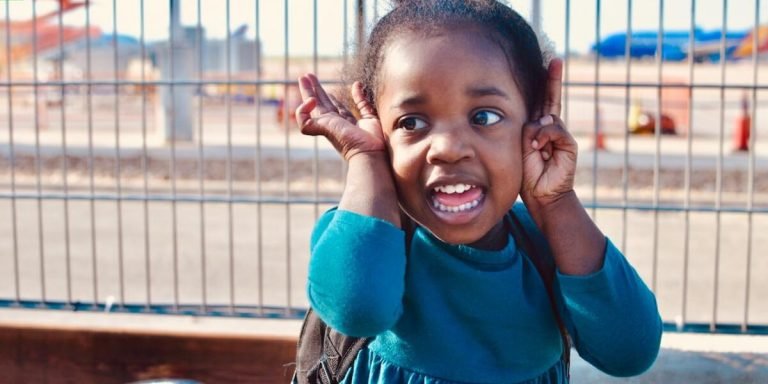Preschool Daycare: Nurturing Children’s Development in the Early Years
Navigating the world of early childhood education can be daunting, especially when considering options like preschool daycare. This is a critical period in your child’s development and choosing the right environment plays an enormous role in shaping their cognitive growth, social skills and emotional competence.
Preschool daycare isn’t just about offering parents convenience or providing children with routine care away from home. These institutions are nurturing spaces aimed at enhancing every aspect of a child’s development during their formative years. They ensure that each day spent there contributes significantly towards preparing them for future educational endeavors.
Did you know?
Did you know that children enrolled in high-quality preschool programs are 24% more likely to attend a four-year college or university, according to research by the National Institute for Early Education Research?
Understanding the Role of Preschool Daycare in Early Childhood Development
Preschool daycare plays a crucial part in early childhood development, becoming the bedrock of formative education. In today’s world where technology has made its way into every sector, including education, understanding how it integrates and enhances preschool learning can offer valuable insights for both parents and educators.
The importance of preschool daycares cannot be overstated as they lay down the foundation for future academic success by introducing children to structured learning environments. But what makes them more engaging is when this structure adapts with evolving pedagogical trends like integrating technology in everyday activities and lessons.
Understanding your child’s digital journey starts from their time spent at daycare—the first step towards a comprehensive yet flexible educational landscape that caters to individual necessities while promoting self-paced growth. Here comes modern tech tools role: applications designed specifically for young learners foster creativity, boost cognitive skills through interactive storytelling or VR-based experiential games—tech-enabled concepts are making waves in shaping tomorrow’s global citizens.
We now live an era where even ‘play’ is intertwined with technological interaction; therefore incorporating such aspects within foundational settings like preschools ensures we’re not just preparing our kids academically but also digitally competent—with confidence to interact safely with ever-evolving gadgets around them.
In conclusion, exploring new ways technologically enhanced approaches can widen scope within traditional teaching methods used at preschool daycares marks commencement of learner-centric education—a much-needed shift from old rote-learning practices helping build critical thinkers who’ll shape 21Century societies!
Key Components of a Quality Preschool Daycare Program
In today’s digitally advanced world, preschool daycare isn’t merely about babysitting services anymore. A quality program must be designed to promote early education and holistic development for every child effectively. Here are the key components one should look out for in a modern-day Preschool Daycare Program.
Classrooms play an essential role as they act as the first learning place where children interact with peers and teachers socially cognitively. An ideal `preschool daycare` will have an environment that promotes interactive learning using digital tools like smart boards, educational apps on tablets or computers – thus integrating technology into everyday lessons creatively.
A successful preschool depends heavily on its staff who understand how young minds learn and develop best through active engagement rather than passive listening—modern pedagogical approaches involving coding games, virtual reality-based activities by trained teams make a difference here.
Preschool daycares now incorporate tech-driven cognitive development exercises targeting critical thinking skills at this tender age—a trend of 2023 well suited to prepare kids for future challenges.
The Impact of Social Interaction at Preschool on Child Growth
In the rapidly transforming educational landscape, preschool daycare has emerged as an essential pillar of early childhood development. Particularly marked is its impact on enhancing social interaction amongst young learners, a critical element in child growth.
At this stage of life, children are like sponges; they absorb and learn from everything around them. The role play during recess or sharing toys with friends at preschool daycare serves more than just momentary fun – it’s their first brush with developing vital life skills including empathy and cooperation.
To understand this better, consider how technology integration plays into learning methods at present-day daycares. Young minds now have access to digital tools which aid interactive group activities that were once limited by physical constraints— imagine collaborating on a virtual drawing board or engaging in story-time through e-books!
Exposure to diverse peer groups at the preschool level further promotes acceptance towards differing viewpoints—an integral part of growing up in today’s interconnected world rich with cultural diversity.
That said, remember these formative years lay crucial groundwork for every child’s future endeavors – academically & socially alike—with constructive inputs from educators being pivotal.
Curriculum Design and Learning Outcomes in Preschool Daycares
When we discuss curriculum design in preschool daycares, technology integration becomes an indispensable element. It’s no surprise that 2023 has seen a surge in progressive teaching methodologies where digital tools are making early learning more engrossing than ever before. The infusion of tech into the preschool daycare environment shapes the curriculum to be much more interactive and dynamic, paving the way for optimal cognitive development.
The profound impact of this technological integration is noticeably manifest in the enhanced learning outcomes among youngsters attending these advanced preschools. Digital resources such as educational apps or online games not only make complex concepts easy to understand but also foster self-learning habits at this tender age.
Simultaneously, it’s essential to mention how this amalgamation supports educators too. They can track individual advancements through education-specific software programs; therefore they obtain measurable data on each child’s progress—allowing them to tailor instruction strategies based on unique needs effectively.
This groundbreaking trend changes our outlook toward early childhood education – from mere rote memorization practices towards holistic growth patterns instilled by efficiently using technology-driven methods within well-designed curriculums at modern-day preschool daycares.
Balancing Play-Based Learning with Academic Foundations
In the world of preschool daycare, striking a balance between playful learning and establishing academic foundations is crucial. It’s not just about introducing your child to alphabets or numbers; it goes beyond that. With the increasing integration of technology in education, this balancing act has become easier and more effective.
Play-based learning forms an integral part of early childhood education at daycares today. Children are naturally inclined towards play—it’s their language! Interactive games foster creativity alongside social-emotional development—attributes which are vital for young children as they learn to navigate interpersonal relationships in these formative years.
On the other hand, we cannot overlook academic foundations either. Sure enough, no one expects toddlers at a preschool daycare to solve complex mathematical problems or read novels! However, planting seeds such as letter recognition or basic math concepts can undoubtedly pave their way toward formal schooling readiness later on.
Now you may wonder how best we incorporate technology into all this?
Technology plays a substantial role here by combining fun with foundational knowledge acquisition seamlessly through educational apps and online platforms designed specifically for little learners’ capacity level.
Imagine playing an interactive game where kids need to identify letters hidden within colorful images? Or perhaps using digital puzzles requiring them to match number pairs correctly?
These activities cleverly wrap up academics inside enjoyable challenges enabling kids both learn while also having fun—a perfect win-win scenario!
Assessing Cognitive Skills Progression Through Preschool Activities
Assessing cognitive skills progression in preschoolers is a crucial aspect of early childhood education, particularly within the structure of modern-day curriculum design. The infusion of technology into classroom settings has transformed traditional teaching methods and amplified learning outcomes significantly.
In an environment like a preschool daycare, interactive activities are instrumental for stimulating young minds and enhancing their intellectual development. Incorporating edtech tools during these activities allows educators to gauge children’s abilities better by making assessments more individualized, instructive, and engaging.
Digital stories or e-books can be used as part of reading sessions with kids. These digital resources not only pique interest but also aid in areas such as vocabulary building and comprehension skills advancement through animated visuals and audio narrations.
Integrating augmented reality (AR) apps into real-world exploration tasks at the childcare center enhances object identification ability besides fostering curiosity about surroundings–key markers developmental milestones during this educational stage .
Nurturing Emotional and Physical Well-being in a Preschool Environment
The integration of technology in early childhood education, particularly within preschool daycare environments, is becoming increasingly pertinent. It plays a pivotal role in cultivating and nurturing both the emotional and physical well-being of our toddlers.
Emotional development at this tender age can significantly benefit from interactive digital tools that are now readily available for incorporation into preschool curriculums. Educational software designed specifically with young minds in mind provides stimulating activities that evoke various emotions. This not only increases their understanding but also helps them manage feelings better as they grow older.
On the other hand, while encouraging sedentary screen time may seem counterproductive to promoting physical health amongst youngsters, technology does not limit itself to just stationary interactions anymore. More progressive gadgets aim towards getting children physically involved too – think virtual reality games or e-learning platforms requiring touch-and-go responses. These introduce fun ways by which these little learners get off their seats and move around even during class hours.
As we tread further into 2023 where tech advances show no signs of slowing down, it becomes vital for us – parents and educators alike – to embrace such advancements positively instead of shying away under misconceptions surrounding ‘screen-time’. It’s high time we recognize how targeted use could lead to holistic growth during these formative years spent in a child’s second home—their preschool daycare center.
Strategies for Fostering Emotional Intelligence in Toddlers
The emotional well-being of children, particularly toddlers, is a fundamental aspect that preschool daycare centers need to focus on. It forms the basis for their personal development and skill enhancement in later stages of life.
With today’s technological advancements incorporated into early childhood education, nurturing Emotional intelligence (EI) has become relatively easier and more effective. EI refers to an individual’s ability to understand their own emotions as well as others’, manage them efficiently, exhibit empathy and develop social skills.
Here are some key strategies that can be employed at your local preschool daycare center:
1. **Emotion Identification:** The first step towards fostering EI is recognizing different feelings. Innovative educational apps like ‘Daniel Tiger’s Neighborhood,’ assist little ones learn about various emotions through interactive cartoon characters which resonate with students’ day-to-day experiences.
Digital storytelling platforms offer stories filled with diverse situations enabling children comprehend different perspectives leading to enhanced empathetic understanding.
3. **Use Of Emotionally Intelligent Robots:** With advancements in AI technology , robots like “Moxie”, designed specifically for kids help boost socio-emotional learning by teaching core values via weekly themes based lessons .
4 .**Virtual Reality Experiences:** VR technologies allow creating real-life scenarios where toddlers can experience how it feels associating various settings hence developing better emotional responses .
Importance of Physical Activity and Nutrition at the Daycare Stage
In the grand scheme of early childhood education, physical activity and nutrition play pivotal roles. As most parents are now opting for preschool daycare, institutions should emphasize these two cornerstones as much as possible.
Physical fitness has an undeniably critical role in a child’s development at this stage. It contributes to various aspects such as strength enhancement, coordination improvement and even cognitive development. For instance, simple activities like jumping or catching boosts motor skills while group games foster teamwork mindset that can be beneficial down the line.
Nutritionist-recommended meals have become increasingly common at preschool daycares nowadays because good nutrition supports overall growth ensuring healthy body mass index (BMI) among children besides boosting their immune system/supporting mental advancement/improving focus etcetera . Children taught about nutritious food they might not get enough exposure elsewhere due healthy eating habits which can last lifetime .
Finally it’s important remember working toward instilling values recognition towards being physically active/healthy will lay solid foundation well-rounded adulthood combining both knowledge experiences develops comprehensive view life/world from early age on.
Conclusion
In the intricate journey of childhood, preschool daycare has proven to be a substantial stepping stone. It provides an enriching environment that nurtures children’s development during their formative years. A well chosen preschool daycare can sow seeds for lifelong learning habits and pave the way towards a balanced emotional, social and cognitive growth.
So whether you’re considering options or have already enrolled your child in preschool daycare, always remember – each day is crucial in this small window of rapid brain development. Feel free to venture around our website as it brims with countless other resources aimed at aiding parents and educators alike on born aspects of educating young minds. Our goal?
To ensure every step taken today leads toward building better futures tomorrow!







